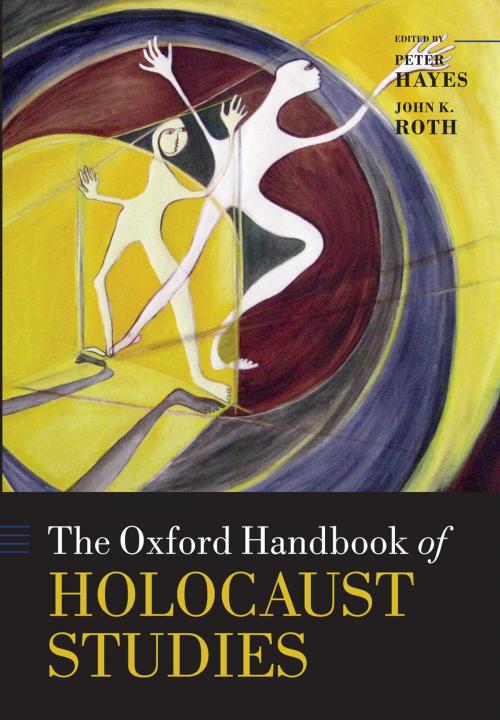The Oxford Handbook of Holocaust Studies
Nonfiction, History, Military, World War II, Religion & Spirituality| Author: | ISBN: | 9780191650796 | |
| Publisher: | OUP Oxford | Publication: | November 22, 2012 |
| Imprint: | OUP Oxford | Language: | English |
| Author: | |
| ISBN: | 9780191650796 |
| Publisher: | OUP Oxford |
| Publication: | November 22, 2012 |
| Imprint: | OUP Oxford |
| Language: | English |
Few scholarly fields have developed in recent decades as rapidly and vigorously as Holocaust Studies. At the start of the twenty-first century, the persecution and murder perpetrated by the Nazi regime have become the subjects of an enormous literature in multiple academic disciplines and a touchstone of public and intellectual discourse in such diverse fields as politics, ethics and religion. Forward-looking and multi-disciplinary, this handbook draws on the work of an international team of forty-seven outstanding scholars. The handbook is thematically divided into five broad sections. Part One, Enablers, concentrates on the broad and necessary contextual conditions for the Holocaust. Part Two, Protagonists, concentrates on the principal persons and groups involved in the Holocaust and attempts to disaggregate the conventional interpretive categories of perpetrator, victim, and bystander. It examines the agency of the Nazi leaders and killers and of those involved in resisting and surviving the assault. Part Three, Settings, concentrates on the particular places, sites, and physical circumstances where the actions of the Holocaust's protagonists and the forms of persecution were literally grounded. Part Four, Representations, engages complex questions about how the Holocaust can and should be grasped and what meaning or lack of meaning might be attributed to events through historical analysis, interpretation of texts, artistic creation and criticism, and philosophical and religious reflection. Part Five, Aftereffects, explores the Holocaust's impact on politics and ethics, education and religion, national identities and international relations, the prospects for genocide prevention, and the defense of human rights.
Few scholarly fields have developed in recent decades as rapidly and vigorously as Holocaust Studies. At the start of the twenty-first century, the persecution and murder perpetrated by the Nazi regime have become the subjects of an enormous literature in multiple academic disciplines and a touchstone of public and intellectual discourse in such diverse fields as politics, ethics and religion. Forward-looking and multi-disciplinary, this handbook draws on the work of an international team of forty-seven outstanding scholars. The handbook is thematically divided into five broad sections. Part One, Enablers, concentrates on the broad and necessary contextual conditions for the Holocaust. Part Two, Protagonists, concentrates on the principal persons and groups involved in the Holocaust and attempts to disaggregate the conventional interpretive categories of perpetrator, victim, and bystander. It examines the agency of the Nazi leaders and killers and of those involved in resisting and surviving the assault. Part Three, Settings, concentrates on the particular places, sites, and physical circumstances where the actions of the Holocaust's protagonists and the forms of persecution were literally grounded. Part Four, Representations, engages complex questions about how the Holocaust can and should be grasped and what meaning or lack of meaning might be attributed to events through historical analysis, interpretation of texts, artistic creation and criticism, and philosophical and religious reflection. Part Five, Aftereffects, explores the Holocaust's impact on politics and ethics, education and religion, national identities and international relations, the prospects for genocide prevention, and the defense of human rights.















